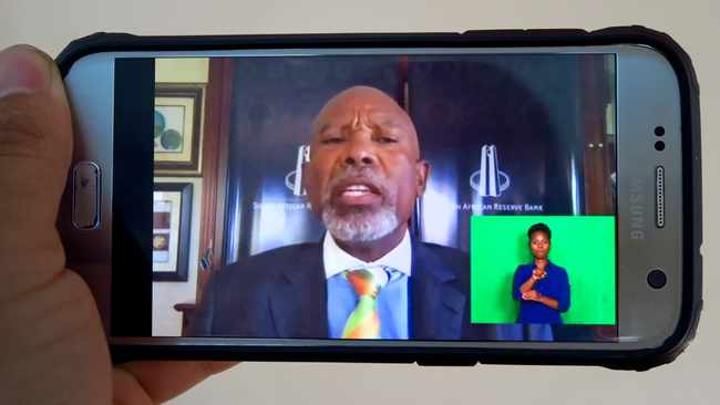Africa-Press – South-Africa. The South African Reserve Bank (Sarb) has defended the R200-billion Covid-19 Loan Guarantee Scheme, in spite of its low uptake by distressed businesses.
Sarb Governor Lesetja Kganyago on Friday said that in spite of the criticism surrounding the low uptake of the loan guarantees, the banking sector had responded swiftly to assist with the shocks of the pandemic.
Thousands of businesses were severely affected when cash flow was restricted by the lockdown measures aimed at curbing the spread of the Covid-19 virus since the end of March 2020.
The Covid-19 Loan Guarantee Scheme came to an end on July 11, with 15 012 loans valued at R18.43bn approved – less than 10 percent of the available funds.
The average value of a loan was R1.23 million, while 82 percent of loans went to businesses with a turnover of R20m or less.
At the Sarb’s 101st AGM, Kganyago said the scheme was a backstop for cases where the commercial banking sector was unable to provide credit relief to borrowers due to high credit risk.
“In practice, banks responded quickly and very successfully, acting swiftly to support the firms to which they lend,” Kganyago said.
“In addition, small and medium businesses appear to have been reluctant to take up more debt, especially in an environment characterised by deteriorating confidence, a sluggish recovery and heightened economic uncertainty.”
The Covid-19 Loan Guarantee Scheme provides loans, substantially guaranteed by the government, to eligible businesses to assist them during the pandemic.
Funds borrowed from this scheme through the banking industry can be used for operational expenses such as salaries, rent and lease agreements, and contracts with suppliers.
Deputy Reserve Bank Governor Kuben Naidoo said the scheme had “played a positive role” in mitigating the impact of the crisis.
Naidoo also said banks had supported their clients through loans, rescheduled loans and payment holidays, largely done on their own balance sheet.
“We would have liked to have played a bigger role. But it has certainly played a positive role, taken in combination with what else the banks have done to support their customers,” he said.
Last week the Banking Association South Africa (Basa) said that one of the key lessons from the scheme was that entrepreneurs were unwilling to take on additional debt in times of business and economic uncertainty.
Basa managing director Bongiwe Kunene said banks were exploring several relief measures for small-, medium- and micro-enterprises, especially following the destruction suffered arising from the recent civil unrest.
Kunene said one of the measures under consideration was the provision of bridging finance, while insurance claims are processed by the South African Special Risk Insurance Association (Sasria).
“Banks will take into account the documentary evidence produced by claimants when considering the provision of bridging finance facilities.
“The destruction caused by the unrest necessitates an injection of equity to rebuild businesses, often from scratch, as they can no longer generate revenue to repay loans,” she said.
“These businesses need alternative relief measures, ranging from targeted grants to temporary measures such as the suspension of rates and taxes to help reduce business expenses and encourage their rapid re-establishment, to protect jobs.”
[email protected]
BUSINESS REPORT ONLINE






